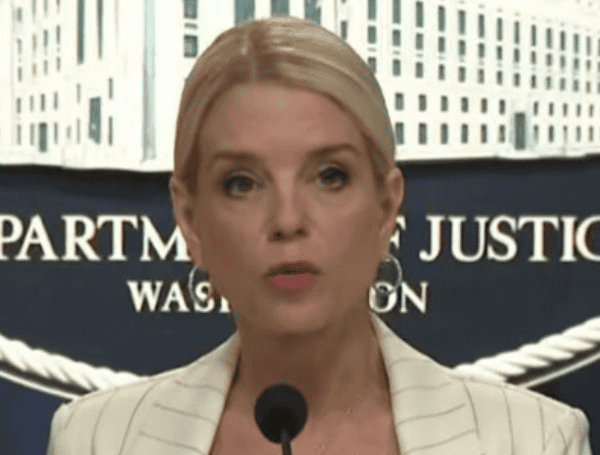The Trump administration is escalating its efforts to counter state-level legal action against the energy industry over climate change, filing lawsuits against Michigan and Hawaii for their plans to sue fossil fuel companies. The move comes as many existing state and local climate lawsuits against “Big Oil” have faced significant hurdles and dismissals in court.
On April 30, the Department of Justice (DOJ) filed separate lawsuits against Michigan and Hawaii, seeking to block their intended legal challenges against companies like Chevron and Exxon. The DOJ argues these state actions constitute federal overreach and interfere with national energy policy and regulation. This aligns with President Trump’s executive order issued three weeks prior on “state overreach,” which emphasized a commitment to “unleashing American energy.”
READ: Colorado Bill Mandating Ride-Share Recording Faces ACLU Privacy Pushback, Uber Exit Threat
The DOJ’s complaints specifically target the states’ plans to utilize private lawyers operating on a contingency fee basis, a common practice among states, cities, and counties pursuing similar climate litigation. The lawsuit against Hawaii also notes the state’s significant reliance on the oil industry.
In its filings, the DOJ asserted that state restrictions and burdens on energy production force Americans to pay more for energy and weaken the nation’s ability to defend itself. “At a time when states should be contributing to a national effort to secure reliable sources of domestic energy, Michigan is choosing to stand in the way,” the DOJ wrote regarding the Michigan case. “This nation’s Constitution and laws do not tolerate this interference.”
The federal government’s legal challenge mirrors arguments made by energy companies in dozens of existing lawsuits filed by states and municipalities across the country. These cases typically allege that energy companies misled the public about the impacts of fossil fuels, leading to damages under state consumer protection or public nuisance laws.
READ: Voters Approve Elon Musk’s Starbase: New Texas Town Incorporated At SpaceX Site
However, judges presiding over many of these existing state-level cases have largely been unwilling to let them proceed. While the initial procedural battle over whether cases belonged in federal or state court (with the Supreme Court ultimately ruling they belonged in state courts based on the plaintiffs’ claims) saw some back and forth, federal judges in California and New York had previously granted motions to dismiss when cases were before them.
More recently, judges handling cases back in state courts on the mainland have also granted motions to dismiss. Several judges, including those in Maryland and New York, have expressed concerns that these cases, while framed under state laws like consumer protection, inherently impact the global energy market, a matter judges believe falls outside the scope of state jurisdiction or requires federal handling.
Judge Videtta Brown, in a case from Baltimore, reportedly stated that such litigation extends beyond the limits of Maryland law. Similarly, Judge Steven Platt dismissed Annapolis’ case, writing, “This Court holds that the U.S. Constitution’s federal structure does not allow the application of state court claims like those presented in the instant cases.” He added that states can participate in emissions efforts collaboratively but “not in the form of litigation” of this nature, suggesting dissatisfied parties should seek federal review.
READ: DNC Vice Chair David Hogg Rips Democrats Over Age, Message
The Hawaii case stands as an outlier among those decided on the merits thus far, where a court denied the defendants’ motions to dismiss. The U.S. Supreme Court later refused to review that specific procedural decision, allowing the case there to move forward, unlike many others.
The DOJ’s lawsuits reiterate core defense arguments: that air pollution is regulated by the federal Clean Air Act, and only the federal government has the authority to make key energy decisions and regulate interstate greenhouse gas emissions.
“Congress delegated to EPA the authority to determine whether and how to regulate greenhouse gas emissions, thereby displacing federal common law claims and occupying the field of interstate air pollution regulation,” the DOJ suit against Michigan states, arguing the state’s claims usurp federal authority.
Regarding Hawaii, the DOJ suit highlights the state’s unique reliance on the energy industry, codified in state law, and contends that Hawaii’s attempts to impose “extraterritorial and excessive burdens” will raise energy costs nationwide and disrupt uniform energy regulation.
Twenty Republican state attorneys general have previously argued that the Hawaii case involves questions of interstate and international law that should be decided by Congress or federal courts, aligning with the DOJ’s current position.
Please make a small donation to the Tampa Free Press to help sustain independent journalism. Your contribution enables us to continue delivering high-quality, local, and national news coverage.
Connect with us: Follow the Tampa Free Press on Facebook and Twitter for breaking news and updates.
Sign up: Subscribe to our free newsletter for a curated selection of top stories delivered straight to your inbox.
